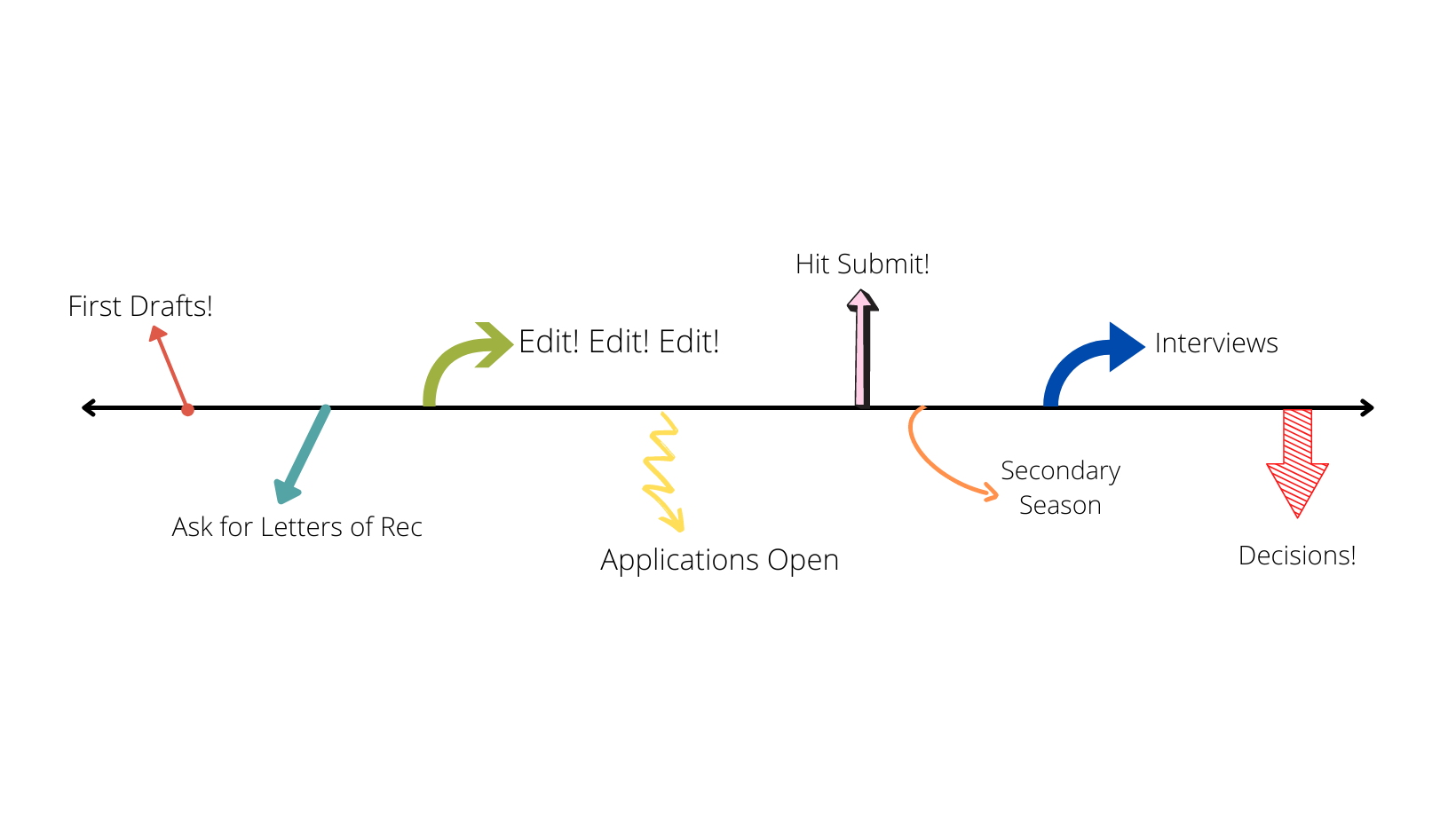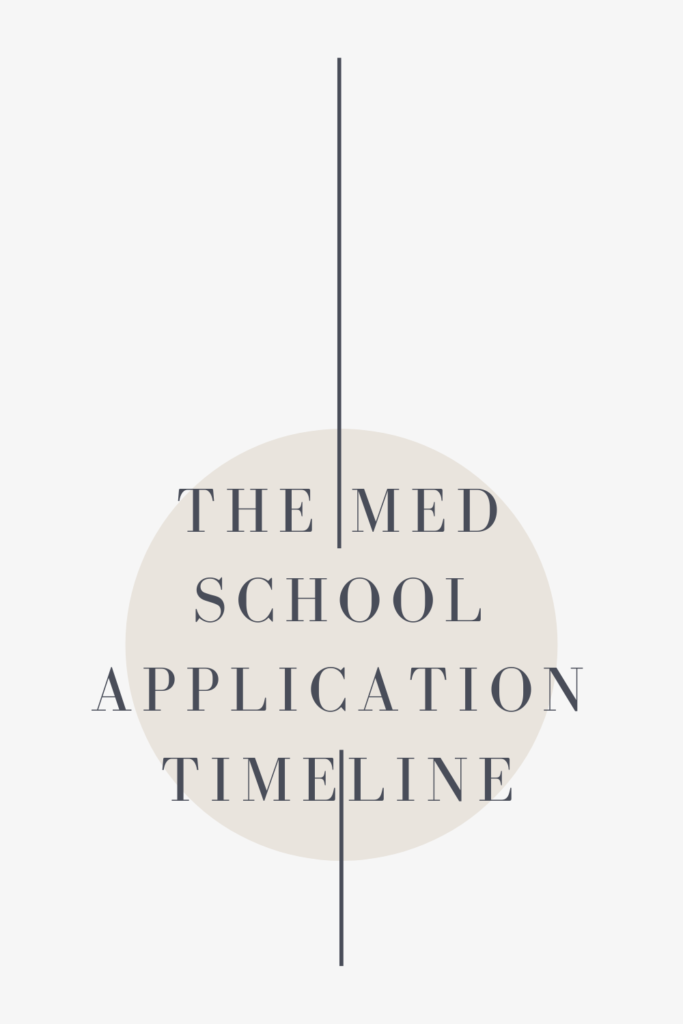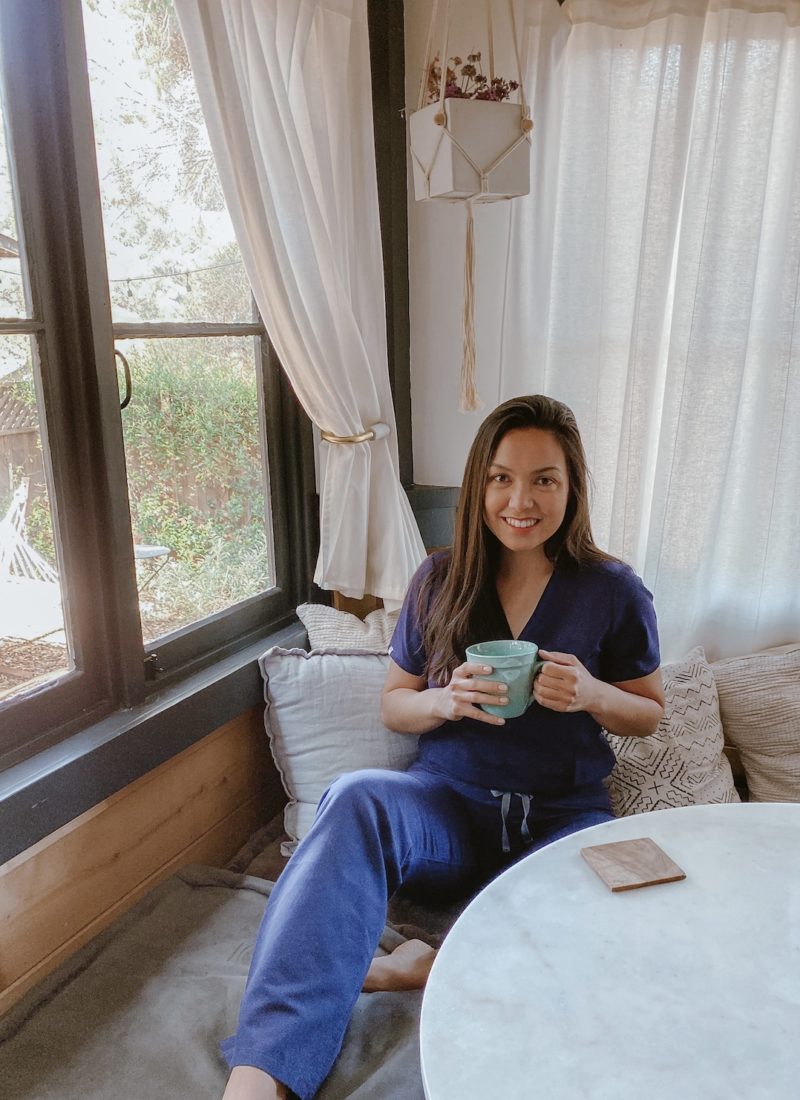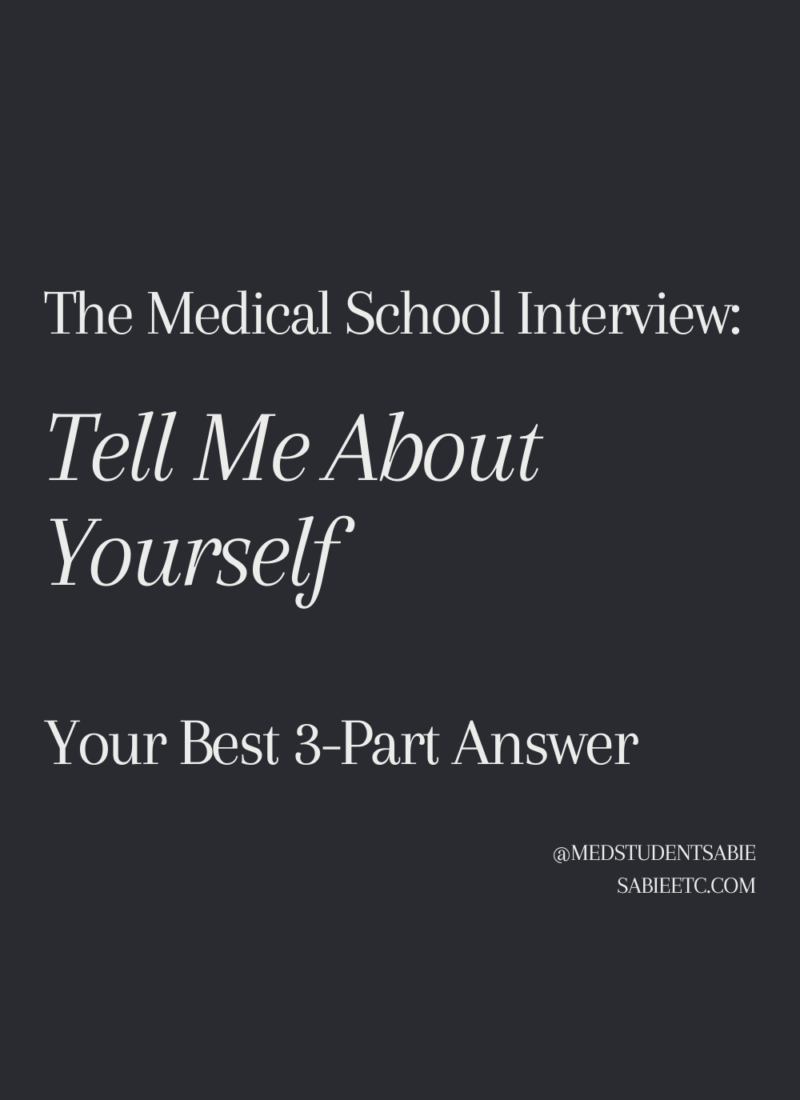The medical school application timeline can be confusing for many applicants. Questions often arise like:
“How early is too early???”
“How late is too late?!!”
Well here is the timeline I personally used for the year leading up to my application cycle. And yes, one year leading up to my application submission! If you’re reading this early enough to do the same, start early! If you have less than a year until your application cycle starts, don’t worry. Some of the steps in the beginning can be sped up based on how much time you have to devote to your application. Below you’ll find a guide to key dates in the medical school application cycle.
This post is all about the medical school application timeline and how you can schedule your application cycle.
The Ideal Medical School Application Timeline
September: Start Thinking About Your Application and Writing a Few Pieces
Your medical school application is a cumulative 18-page-ish document of all your educational endeavours and experiences since high school. If you tackle it in steps, it might actually be a really enjoyable and rewarding process. So with that being said, things to think about this month:
Who could I ask to write my letters of recommendation?
Note: Think variety with this… most schools have a unique combination of letter writers they like to see. This includes science professors, non-science professors, people who can speak to your research or volunteer experiences, and physicians. Try your best to find one in each category. You don’t have to ask them yet, but at least start thinking about this. You should reach out with an update/hey how are you email if you haven’t spoken in a while! It is also good to find out if your school offers a Committee Letter, if you don’t know already.
What are my 15 entries going to be in my Work & Activities section?
Note: You don’t have to have 15, quality over quantity applies here! Jot them down in a document somewhere. If you have time, maybe put some bullet points if you have any memorable stories related to each one. Take a look at the AAMC Website page (The Core Competencies for Entering Medical Students). If you are lacking activities that demonstrate any of these competencies, you have some time here to try to fill in the gap before applying!
October-December: Start Writing Your Work & Activities Section
Depending on what types of schools you are applying to, you will have to write about each experience in 600-700 characters. On the AMCAS, you will be given the opportunity to highlight three of the fifteen entries as your “Most Meaningful Experiences.” This will give you an extra 1325 characters to elaborate on each of these three experiences. During this time, pace yourself, write 1-2 activities a week. At this time you can afford to “over-write” on them and cut down the characters at a later time. They don’t have to be perfect. However, you’ll thank yourself come the new year when you at least have a starting framework to elaborate and edit from. For more advice on writing memorable Work & Activities entries, read this post.
RELATED POST: Mistakes to Avoid in Your W&A Section: Mistake #1
January: Write a First Draft of Your Personal Statement
This is probably the application section that premeds dread the most. Starting early can give you time to really formulate your story. I want to emphasize the part of the title that says first draft. This doesn’t have to be your final draft. It doesn’t even have to be 50% of what you include in your final draft. Again, it’s important to get your ideas and thoughts flowing so that you have the luxury of time to step away from it and come back to it. For tips on how to start your personal statement, check out my post here!
February-March: Start Editing!
Over these eight weeks, spend an hour or two each week putting some time and effort into these written portions of your application. Is it necessary to work on it each week during this time frame? No. But my advice is to have shorter length sessions and more frequent writing sessions in order to avoid writing block and fatigue. Each time you’ll have fresh eyes. From experience, I’ve sat too long at my computer, frustrated with my content because I couldn’t “feel” anything from it. This will happen any time you read something too many times in a short amount of time.
Be kind to yourself and spread out your editing process!
This is also a good time to get anyone and everyone to read drafts of your personal statement and provide feedback. This can be your parents, professors, mentors, pre-health advisors, or there are professional editing services available. For reviews on the editing services I used, click here.
RELATED POST: Cut Down Characters in An Essay | 5 Helpful Tips
April: Ask For Letters of Recommendation & Begin Compiling a School List
Now’s the time to go back to the list you made of potential letter writers, and ask them! My advice is to ask them in early April. There is usually a lot of logistics involved with getting your letters to the application service(s). Additionally, some of your letter writers may require information from you in advance to write your letter or may want to meet with you first. Giving them ample time to write your letter is a good sign of respect and shows how much you value their time. For tips on how to ask, look for my post How to Ask For a Letter of Recommendation coming in March! Now is also a good time if you haven’t already to begin looking up programs you may want to attend. AAMC’s MSAR is a great tool to get you familiar with schools. The best resources will be the individual medical school’s website! For tips on how to compile your medical school list, read this!
May: Application Portals Open, Start Inputting!
Usually in the first few days of May, application portals will allow you to create accounts and begin entering demographic information. You will also be able to generate a Transcript Request Form to send to any institutions you attended after graduating high schools. I highly recommend doing this as soon as possible. You need to take into account the time it takes for your school to send your transcript to the application service and for them to open it and mark it has been received. Part of your responsibility is also to manually enter your coursework into the application which can be a tedious and time consuming task. You should be getting the last edits and final drafts of your Personal Statement and Work and Activities entries and inputting them into the application as well.
May-June: Press Submit!
Depending on the year, application portals will open for submission in May to the beginning of June. Submit as early as you can! My advice when it comes to compiling your application is go as fast as you can but as slow as you need to. Once you press submit, the application service will have to verify your what you entered for your coursework is true compared to your transcript. Only when your application has been verified will it actually be sent to any medical schools. As you can imagine, as the submission window goes by, a higher volume of applications get submitted which can delay the review of your application. A good rule of thumb to be on the safe side is to aim for submission by June 15, and ideally no later than July 1.
My advice when it comes to compiling your application is go as fast as you can but as slow as you need to.
June-August: Secondary Season & CASPer Testing
I will say the most overwhelming part of the application cycle for me was when my application was verified and my inbox started getting flooded with secondaries. However, I did enjoy the opportunity to be creative with some of the questions each school asked. I’ll be writing more about how to attack your secondaries when the season rolls around, but in general you want to turn around your secondaries as soon as you can. Additionally some schools will require you to take the CASPer exam, and this is the time to do it!
August-March: Interview Season
This is probably the most stressful of the seasons because you’re in the waiting zone. Every school is different in the number of interview invitations they send out (you can view each school’s specific numbers on MSAR or on their website). Don’t get discouraged during this time! I ended up only having one interview in November and then found out about three in January. So always stay hopeful (and stay off of SDN!!!).
October-August: Decisions, Decisions, Decisions!! And a whole lot of silence…
The truth is most schools that you apply to will ghost you. This is known as the infamous “silent rejection.” The truth of the matter is, so many qualified people apply for medical school. A lot of schools will keep your application in the pool until they are absolutely certain they have selected their incoming class. The earliest time that a school can send out acceptances depends on the type of school. For MD schools, the date is October 15, while DO schools are able to release acceptances any time following the interview. Sadly, rejections come out during this time frame. If you interview and are waitlisted, you will likely see the most movement in April and May due to the fact that applicants with multiple acceptances are required to only hold up to three acceptances by April 15 and should be committed to one school by April 30. Waitlist movement is still going through the summer months all the way until the first day of classes! If you are waitlisted at a school, I highly recommend sending update letters if your school accepts them.
July-August: First Day of School!
If you earn an acceptance, most programs will begin in July and August! There are a few exceptions for some dual-degree programs that have you take some of your curriculum during the summer.
So that’s my timeline! Now just because it worked for me doesn’t mean that you have to follow it step-by-step. You know yourself best, how you work, and what priorities you have leading up to applying to medical school! My point here is: Give yourself enough time so you won’t stress out. Applying to medical school is an intensive and detailed process.
Make a plan, and stick to it!
This post was all about the ideal medical school application timeline. I hope you found it to be helpful on your journey to medicine!










Leave a Reply